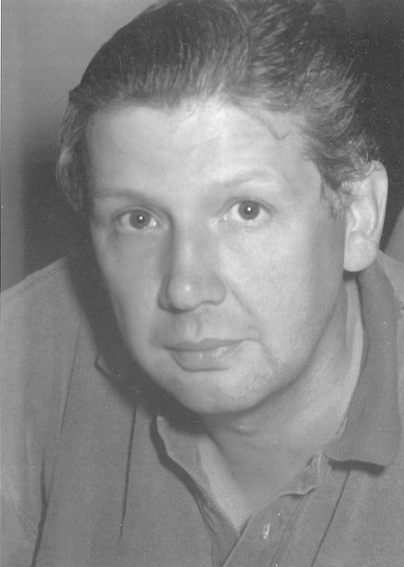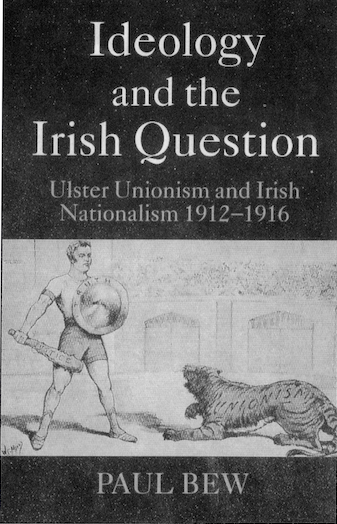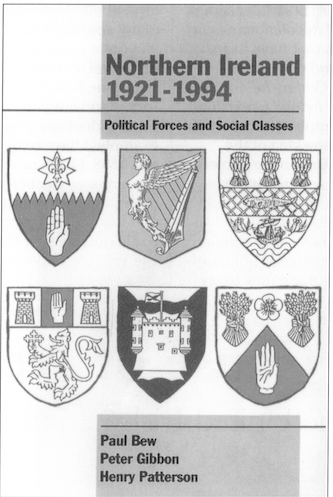
John Lynch talks to one of the most prolific Irish historians of recent years, Paul Bew, Professor of Politics at Queen’s University, Belfast.
JL: Tell me about your background.
PB: I was born in Belfast in 1950, the child of a mixed marriage. My parents were both doctors. My father was an RAF doctor during the war in India and my mother, whose maiden name is Leahy, was from Charleville in County Cork. She was a doctor in the British Army’s Indian Medical Service and they met and married in Delhi which, when you think about it, is where Protestants from Belfast marry Catholics from Cork.
JL: What sort of education did you have?
PB: I was a boarder at Campbell College. Campbell primarily emphasises science subjects but when one looks at the current generation of northern Irish historians, the emphasis has switched from Inst. [Belfast Royal Academical Institute] to Campbell. David Harkness, Anthony Malcolmson, John Gray, Brian Walker, Andrew Gailey and myself, are all Campbell historians, and Cambridge historians as well. I went to Cambridge in 1968. A number of historians there were in at a very creative phase of their careers—John Vincent and Norman Stone, for example, who later became identified with the intellectual right. Edward Norman, subsequently my supervisor in Peterhouse, taught an Irish special subject on the Home Rule debate and had a very strong interest in Ireland which is reflected in the two books that he wrote at that time. I was taught political thought by Duncan Forbes. I liked Raymond Williams’ teaching and attended his lectures. It was an exciting time to go there, to be subjected to a variety of approaches and it definitely had a very big influence on me. I am not in any sense intellectually a product of the Moody, or the Dudley Edwards or the Desmond Williams schools or even the Beckett school of Irish history as so many of the modern practitioners are. My background was different. I worked quite extensively in other areas and I had done very little Irish history with the exception of the normal specialist subject.
JL: What in your background has influenced your views on Irish history?
PB: I have no illusions about Irish Catholics and Protestants. I am the grandchild of the well-off Catholic Irish farming class and there is an interest in that theme in my work. I am conscious of the role of that class in Irish history to a marked degree. My upbringing in Belfast has given me an interest in Unionism as well. I would like to think that one of the features of my work is that I try to be equally at home with Belfast sources as with Dublin sources. The civil rights crisis was going on when I went to university at eighteen. Many friends were involved, as I was to some degree myself. So when I first came to write about the national question and look at the crisis of 1879-82 I had already lived through a crisis in which the issues of social reform, nationalism, the relationship between them, and also the relationship between means and ends of political strategy, were present. I knew something about the messiness and the incompleteness of radical projects and in particular about the way that one can end up with results very different from those intended. This influenced Land and the National Question (1978). My concern was to reconstruct what people who have been involved in the Fenian movement in the 1860s and 1870s were trying to do with the land question in the late 1870s and to give a sense of the instability, the fears and the confusions which characterise a revolutionary conjointure.
JL: You are an historian working in a Politics Department. Do you feel that politics and history are inevitably linked?
PB: In Ireland there is a rhetorical connection between political debate in history which is more marked than in most other countries. Within the nationalist project there is remarkably little in the way of positive vision. At the end of twenty-five years of this war, you can go over to the University Bookshop and you will not find even a slim volume telling you ‘this is why a united Ireland will be a better place’. You will find many volumes occasioned by the Troubles in which a great deal of effort has gone into outmanoeuvring, either militarily or politically, the Unionists but remarkably little saying ‘this is why it is going to be better’. Within the nationalist project, in place of a positive vision, there is a notion of expiating some kind of original historical sin. This is why historical questions are more important in Irish politics than elsewhere. It surprises me that a great deal of bad history is working its way through Irish politics. It is easy to point this out, for instance, if you look at Ian Paisley’s essay about Carson in House magazine on the one hand and compare it to Alvin Jackson’s biography of Carson on the other. There you find that the real Carson is full of conflicts. The real Carson says I am an Irishman first. The real Carson was tremendously committed to the Council of Ireland which he wanted to be strong. And so the complexity of Carson as a figure, not just the neuroticism of that special personality, but the actual historical positions he took, is completely occluded. This is less of a problem for Unionism which has never been much interested in historical questions. What surprises me is that nationalism, officially at least, takes history seriously. There is a great deal of misrepresentation going on. For example, if you look at the Irish government’s historical submission to the talks in 1992, it says that after the Larne gun-running there were no further serious talks involving nationalists leading up to partition. In other wards the Larne gun-running was a marvellous coup which transformed the balance of forces totally and then gave the Unionists the happy outcome of the six-county state. What do they think was happening at the Buckingham Palace conference, the summer after the Larne gun-running? There is bad history operating in politics in both communities.
JL: Can there be such a thing as a politically neutral history of any country?
PB: I have just recently agreed to do the Ireland volume 1798-1998 in the Oxford History of Modern Europe series edited by Lord Bullock and Sir F.W. Deakin and this is a problem which is very much in my mind since I took on the project. I am not setting out to write a neutral history but I am still tempted by the idea that there is such a thing as the science of history—perhaps a hangover from my intellectual formation in the 1970s. A scientific history book does not settle a question for all time but opens up debates and initiates new discussions. I would be very happy if I was capable of producing such a book. That is actually the way science evolves.
JL: Your new book, Ideology and the Irish Question, is concerned with the period 1912-16. Is there really a need to re-assess the role of the Irish parliamentary party in these years?
PB: As I said in the book it is not just a case of examining the question out of pious respect, recreating the world of a political class which was effectively destroyed by the Easter Rising. There were a number of positions represented by the party which were quite complex and quite interesting. I do not think they can be dismissed as obese, bourgeois, machine politicians, purely opportunistic, so I think there is a Redmond world-view which is worth recreating. Furthermore the defeat of his party has important implications for the intractability of the northern question in Irish politics. So for both these reasons it is worth looking at. The objective of the book is not just to look at the Irish parliamentary party but to bring together its world with that of Ulster Unionism and somehow tie them both in. The failure to do this is one of the obvious weaknesses of modern Irish history books. Mostly they are about the progress of nationalism. Sometimes there is a bit of discussion of Unionist opposition to it and a few books actually about Unionism but what I was trying to do was to hold them both together in creative tension and to study their interaction.

JL: I understand that Peter Gibbon, Henry Patterson and yourself will shortly be publishing a radically revised and updated version of The State in Northern Ireland, first published in 1979. How do you now view the historical debate about the state in Northern Ireland?
PB: I am surprised by how little it has moved on. In one important respect it has just moved on radically with the recent publication of Eamon Phoenix’s Northern Nationalism. One of the great gaps in our knowledge up to now has been the absence of any serious discussion of the Northern Nationalist tradition except in so far as the Unionist state impinged upon it, so it has moved on in that respect. But overall the discussion of the state has not moved on much since The State in Northern Ireland came out. A lot of the discussions now of that state, particularly of the post-war period, seem to be highly rhetorical. Many of the types of discrimination that we discussed in our book depended upon Unionist political control through the Stormont system. That was destroyed in 1972 and we are in a changed situation. Too much that is written about Northern Ireland does not acknowledge the radical implications of the implementation of direct rule. So I find it surprising that in the 1990s you can still find people who talk about the Orange State.

JL: What problems are there in teaching history or politics in a divided community?
PB: It has been quite difficult, perhaps more so in this department than any other because it is very large, and because it has inevitably attracted people who are engaged in some way or other in the crisis. It can be very difficult to teach in a way that respects the positions and experiences which have formed their attitudes, though it has become noticeably easier in the past few weeks. Simply the absence of violence makes it easier; there is a more relaxed university-like atmosphere about the place. If you lecture to a large group here, inevitably you are lecturing to people some of whose families has been directly caught up in or have suffered through the violence. You must treat them with a degree of respect. It is not their fault that this situation has existed for the last twenty-five years. Most of them were not born when it started. It has narrowed their sympathies and you have to approach them with that in mind.
JL: What aspects of Irish history are particularly sensitive in Northern Ireland today and how would you approach these?
PB: It is pretty obvious what the issues are. The most difficult one is discrimination against Catholics in the North. There are open areas of debate over certain aspects but there is no question about discrimination. There are, however, questions about scale, changes over time and so on. Surprisingly, another difficult area is the 1916 Rising. Quite a number of our students would feel that any criticism of the 1916 project is almost a personal one. Other areas difficult to treat are Southern Protestants since independence and also the economic and social life of independent Ireland. These issues cause the most tetchiness in discussion.
JL: You recently co-authored Passion and Prejudice. Can you tell us about its subject, the Irish Association, and what it seeks to achieve?
PB: I was, until John Bowman took over recently, the president of the Irish Association. It was founded in 1938 by Hugh Montgomery, a retired British Army general from Tyrone of liberal Unionist stock, with a view to removing ‘passion and prejudice’ and to improving dialogue between north and south. So it is the oldest of the bodies devoted to political reconciliation in Ireland and amazingly it still survives although it went through very rough times, for example, in the early 1950s. But it has had a continuous life and provided a platform for debate during the very dark years of the Troubles. To be honest, at times when I was president and putting together conferences and debates, I often asked myself whether it was actually futile? Now I feel quite good about it. The other aspect is the papers which were handed over to me when I became president. I was the first historian for some time. They were an extremely interesting set of political letters and formed the basis for Passion and Prejudice. About thirty years ago Ken Darwin gave a very interesting lecture to the Association based on a good selection of them but there were actually much more so we put these together in the book. Since then the Montgomery family has deposited other material in the Public Record Office, Northern Ireland which is of particular interest to historians because Montgomery corresponded with T.W. Moody, Nicholas Mansergh and Constantia Maxwell. It is clear that Montgomery was very taken with the establishment of Irish Historical Studies. It was a frail organisation and it was very important to me that the Association did not disappear under my presidency. The fact that it did not is more due to Barbara Fitzgerald, the executive director, than it is to me.
JL: Some years ago Roy Foster said ‘we are all revisionists now’. Do you see yourself as a revisionist?
PB: Now that there is a the ceasefire on the streets, I hope it may lead to a some kind of ceasefire in the academy as well. I think there will be a change in the terms of debate over the next few years and that would be a valuable thing. Speaking about the period since 1858, the period I work on professionally, I would broadly speaking take the view that the revisionists’ works or works that are considered revisionist have been more intriguing and more powerful in their explanatory content. I am thinking of the books on the Land Question, Bill Vaughan’s Landlords and Tenants in Mid-Victorian Ireland, Cormac Ó Grada’s Ireland: a New Economic History 1780-1939, books on the culture of nationalism, for instance Tom Garvin’s Nationalist Revolutionaries in Ireland 1858-1928, and also the books that have been published on twentieth-century Ireland up to and including Dermot Keogh’s Twentieth Century Ireland . I would consider The State in Northern Ireland a revisionist work and it is clearly one which emphasises to a considerable degree the discriminatory working of the Unionist state. Revisionism is not as tied to the project of nationalism or unionism as many people think it is. You can make a case for saying that the possibility of any form of Irish unity is actually reduced by some historiography to what is essentially grievance mongering. While there is no question as to the existence of historical sufferings, surely it is more appropriate now to try to come to terms with the political and economic realities as they are in the 1990s. This goes back to my original point about the notion that any settlement of our difficulties has to involve an element of expiation for the past. I am just not sure how that can be done.
JL: Of all your works what would you chose to be remembered for?
PB: I would like to be remembered for the general political history of Ireland I am writing at the moment. F.S.L. Lyons wrote Ireland since the Famine in 1971 and it is not worth writing anything unless you were going to say something significantly original and arresting which in some way deepens, if not actually challenges, the level of understanding of that book. One of the features of my approach has been to look at the nationalist project quite seriously and to find out what the strategies of Parnell and Redmond were from the 1870s through to the Home Rule crisis of 1912-14. In approaching the history of Ireland you have to empty your mind of contemporary ideological baggage. In this general history, for example, I have to deal with the period between 1798 and 1858. I have never worked on early nineteenth-century sources before and it would be fatal if I approached them with some kind of agenda. Somehow you have to apply general principles. We all have to try to rid ourselves of the tensions and restrictions which the Troubles have inevitably created for historians.
